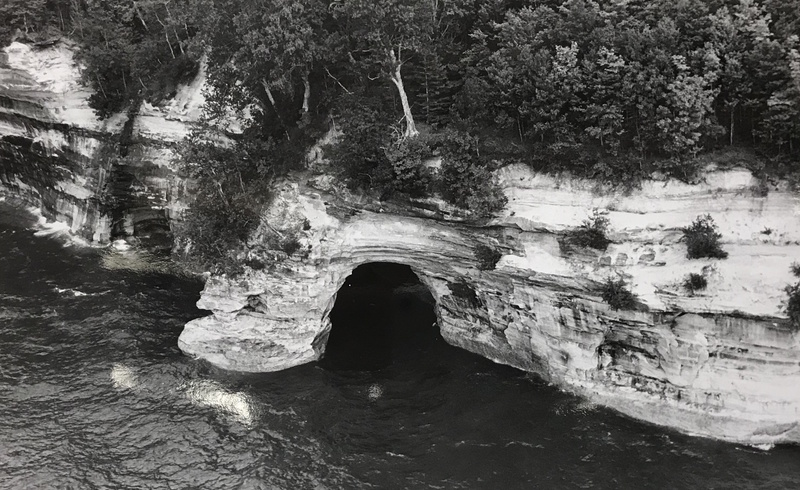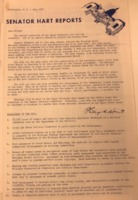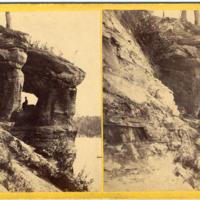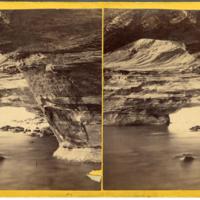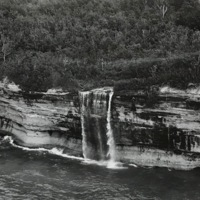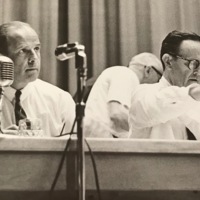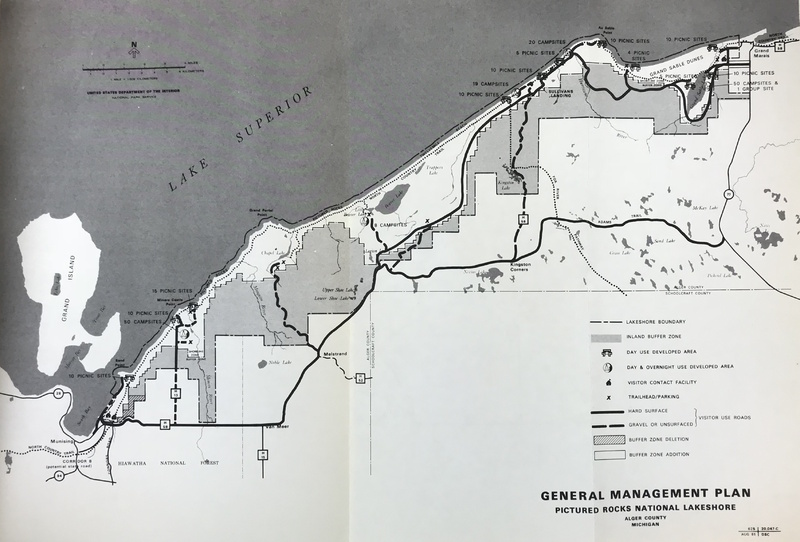Pictured Rocks National Lakeshore
In 1961, Senator Philip Hart of Michigan introduced measures to protect both Sleeping Bear Dunes, spanning down the coast of Lake Michigan, and the Pictured Rocks of Michigan’s Upper Peninsula. The Pictured Rocks lakeshore consisted not only of miles of Lake Superior shores framed by intricate rock formations, but of sandy beaches, expansive forests, glacial streams, and waterfalls as well. In his speech introducing the new bills, Senator Hart said that the lakeshore was a “landscape combination that [was] not only worthy of preservation for its scenic beauty, but important for the natural and geologic history it contained.” He said that in order for the public to fully enjoy the beauty and importance of this land, that the lakeshore should be combined with the adjacent Grand Sable Dunes to form one monument – the Pictured Rocks National Lakeshore.
In one of Senator Hart’s Reports from Washington, D.C. in 1962, he presented his constituents with a revised plan for the Pictured Rocks National Lakeshore. Hart previously received concerned feedback from the people of Michigan’s Upper Peninsula in relation to the proposed park and their local industries – timber, hunting and fishing, and tourism. In this report, Hart managed to address and explain all of these concerns and how the development of a national park in this area would affect these industries. He said that timber operations in designated zones would be permitted to continue producing timber, that hunting and fishing would be able to continue to a large extent, and that park’s intent was not to compete with existing tourism industries of the area. He ended this report by encouraging locals to come to hearings about the lakeshore and to share their ideas. “Hearings will be held in the Upper Peninsula this summer by the Public Lands Sub-committee of the Senate Interior Committee. Certainly, your help and suggestions would be welcomed in bringing to reality this first National Lakeshore in the Upper Great Lakes.”
Senator Hart produced a series of promotional videos in the 60’s in relation to the creation of the Sleeping Bear Dunes as a national lakeshore. This video was part of the series and touched on the creation of Pictured Rocks National Lakeshore. At the beginning of the video, a reporter asks Senator Hart if he thinks the Pictured Rocks bill will pass more quickly than the Sleeping Bear bill, which ended up taking over nine years to pass in Congress. Senator Hart responded saying that the bill is less controversial than that of the Sleeping Bear bill and that therefore, he thought it would pass more quickly. He also mentioned that negotiations with the then current owner of the land was being very cooperative and that many people supported the creation of this area as a national lakeshore.
In October of 1966, President Lyndon B. Johnson signed 7 wilderness bills into action including one that created the Pictured Rocks National Lakeshore. In his speech, Lyndon Johnson said, “When our forefathers came here they found nature’s masterpiece. They found a beautiful, rich, varied, fertile land, a whole continent to farm and to hunt on, and to explore.” He said that those bills he signed into action on October 15th, 1966 would help restore some of the nations most beautiful areas and allow the people to enjoy them for years to come.
Sources:
Bentley Image Bank, Bentley Historical Library, University of Michigan
Genevieve Gillette Papers, Bentley Historical Library, University of Michigan
Douglas Fulton Papers, Bentley Historical Library, University of Michigan
Philip A. Hart, Sleeping Bear Dunes Films: Sleeping Bear Dunes [Part 6], 85193-129, Bentley Historical Library, Digital Media Library, University of Michigan
Public Papers of the Presidents (1966)
Sierra Club, Michigan Chapter Records, Bentley Historical Library, University of Michigan

